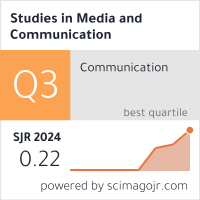Uses of Social Media among Selected Labour Unions in Abuja during Nigeria’s (January 2012) “Oil Subsidy” Removal Protests
Abstract
The removal of oil subsidy in Nigeria (January 2012) sparked protests across the country and a nationwide strike action organised by the Nigerian Labour Congress (NLC). This study examines the role of social media during these protests. This study ascertains why people in Nigeria used social media during the protests instead of other pre-existing media- radio, television, newspapers, magazines, etc. Furthermore, it identifies the purposes for which social media was used (and by whom) during the protest whether intended or otherwise. For instance, in what ways can social media influence public opinion/mobilise people and groups to protest? Using a survey the study finds that: social media was used during these protests because restrictions in other media stifle expressions of individual opinion in the public sphere. A significant percentage of the opinion expressed via social media during these protests was of frustration due to mismanagement and corruption by the Nigerian government. Pictures, factual/statistical evidence and intelligent analysis of issues were a persuasive force on social media which shaped public opinion and mobilised people to go out on the streets.
Full Text:
PDFDOI: https://doi.org/10.11114/smc.v2i1.401
Refbacks
- There are currently no refbacks.
Studies in Media and Communication ISSN 2325-8071 (Print) ISSN 2325-808X (Online)
Copyright © Redfame Publishing Inc.
To make sure that you can receive messages from us, please add the 'redfame.com' domain to your e-mail 'safe list'. If you do not receive e-mail in your 'inbox', check your 'bulk mail' or 'junk mail' folders.
If you have any questions, please contact: smc@redfame.com
------------------------------------------------------------------------------------------------------------------------------------------------------

